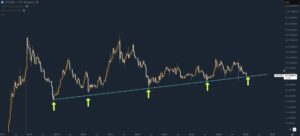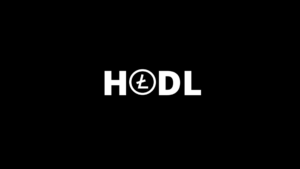To the uninitiated, Uniswap might seem like just another crypto buzzword, when it actual fact it is the current DEX gateway to circumvent capital controls in their entirety.
The alleged decentralised exchange has turned into the most widely used trading platform in an emerging niche sector known as decentralised finance, or DeFi. Since its launch two years ago, Uniswap’s average daily trading volume jumped to about $220 million, according to figures from coingecko.
Research and data provider Messari estimates that Uniswap makes the fourth-biggest crypto exchange in the world, behind industry behemoths like Binance, Huobi, and now-embattled (and not so okay) OKEx.
An emergent Uniswap use-case
Coin issuers and traders are have recently flocked to Uniswap due to its high-risk – high-reward status in areas such as yield farming. In recent history, traders have realised triple-digit returns by pooling and lending cryptocurrencies for interest and fees, while being awarded other coins as incentives.
Of course, arguments against this largely ‘in-house’ ecosystem have proliferated over the months. One of the most credible arguments is the criticism against an influx of tokens which only retain value due to more people buying in, which in turn giving other tokens as a reward. Some might even call this a de-facto ponzi scheme and rooting such schemes out should be a top priority if DeFi is to turn into something larger.
However, while no new technology comes without downside risks, the new doors that Uniswap has opened are hard to deny.
”It’s just phenomenal,” said Paul Veradittakit, a partner at Menlo Park, California-based Pantera Capital Management LP, which is considering investing in Uniswap’s own tokens. “We can really see decentralized exchanges make a huge dent in the market and potentially overtake centralized exchanges.”
DeFi apps are designed to let people lend, borrow, trade and take out insurance directly from each other, without use of intermediaries such as banks. However, while the underlying protocol might be ‘censorship resistance’ (though this also remains to be seen) – website can still be taken down. Additionally, there’s no escaping the possibility that Hayden Adams might end up in a similar situation to Kim dot com, who remains in legal struggles to this day.
In any case, unlike centralised exchanges, Uniswap does not charge issuers to list new tokens, and generates revenue through transaction fees. Given its complete free-for-all and unfettered free-market approach, the protocol does not have any standard regulatory measures built in, making it a huge target for law enforcement everywhere.
Uniswap currently lists 845 tokens. The world’s largest cryptocurrency spot exchange, Binance, lists 820 coins in comparison.
Uniswap is built on ethereum and is therefore not controlled by anyone (allegedly). A team of programmers work on improving it but it is also governed by a community of its owner users.
The early-stage DEX with potential
Adams founded the New York-based exchange after losing his job as a mechanical engineer at Siemens AG in 2017.
The exchange has raised millions from venture capitalists including Paradigm, Andreessen Horowitz and Union Square Ventures.
In its extremely limited lifetime, Uniswap has shown considerable resilience – though this resilience is entirely dependent on the Ethereum network’s fundamentals and scalability prospects. Since its launch, the exchange has continued to grow, in part due to release of its own token to help improve user loyalty.
Currently, the market capitalization of the exchange’s UNI token is about $560 million.
For now, institutional investors appear to be steering clear of Uniswap, which is primarily dominated by tech savvy retail investors, but should the project prove itself, this could change quickly.
Uniswap’s volume is generated by a relatively small amount of users, according Kyle Samani of Multicoin Capital Management, who estimates that as of September first, only 50,000 to 100,000 people have used Uniswap. Binance, by comparison, had more than 15 million users at the end of last year.
“Saying that something is the category winner with fewer than 100,000 users who have ever used the product feels short-sighted,” Samani said. “This competition is just getting started. We are in the first inning.”
Clearly, DEX’s have come a long way in a short amount of time, but their journey has only just begun. In it’s current form, questionable decentralisation, the ethereum-based systemic risks as well as the possibility of a regulatory clampdown make for a tough road ahead.
Join the telegram channel for updates, charts, ideas and deals.


